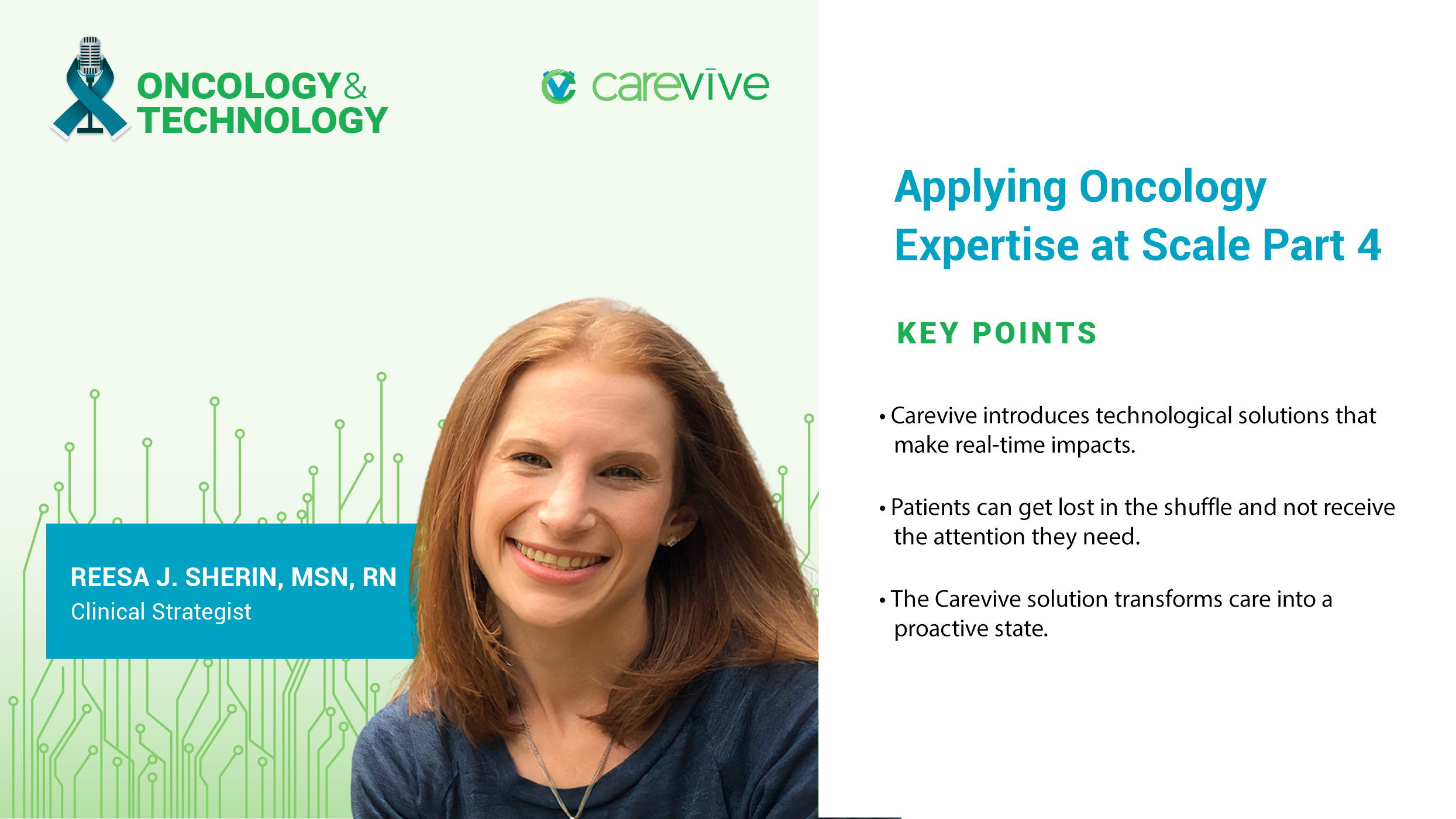
Summary
Carevive exists to improve the lives of cancer patients. But doing that, can’t be accomplished without integrating real-time solutions into cancer centers around the nation. In Part Four of “Applying Oncology Expertise at Scale” host Tyler Kern chats with MSN & RN Reesa Sherin, a Clinical Strategist for Carevive Systems, about the importance of the oncology technology solution.
As the daughter of a cancer survivor, Sherin has a had a long and profound journey. After starting her nursing background in pediatric cancer before switching to adult oncology, Sherin knew she wanted to work in an environment that could help with symptom management, triage, and resource finding.
Sherin said her role, which she has held for the past few years, “help[s] support our new prospective clients with implementing and understanding how it would benefit them in their cancer centers.”
Sherin’s passion for oncology is evident in the nature of her career and she works to remind everyone that some patients can “get lost in the shuffle.” Sherin said, “These patients need the chronic care that they may not get if they’re not ‘elderly’.”
Many patients need support throughout their cancer journey and often, team members are stretched thin and act in a “reactive state” to address patient needs. Sherin is working to change this. She said, “So, I understand both the patient care aspects along with the balance that needs to be done with the bottom line of the center resources…”
Communication and education play a vital role in addressing the knowledge gap and transforming care. Carevive’s patient-reported outcomes act as a window into patient thoughts and ideas. Sherin explained, “[We]…let people know that this is something that’s out there, that we can support you and your patients and understanding what’s going on in between scheduled visits so that you can proactively engage with patients as opposed to that kind of reactive state…”
